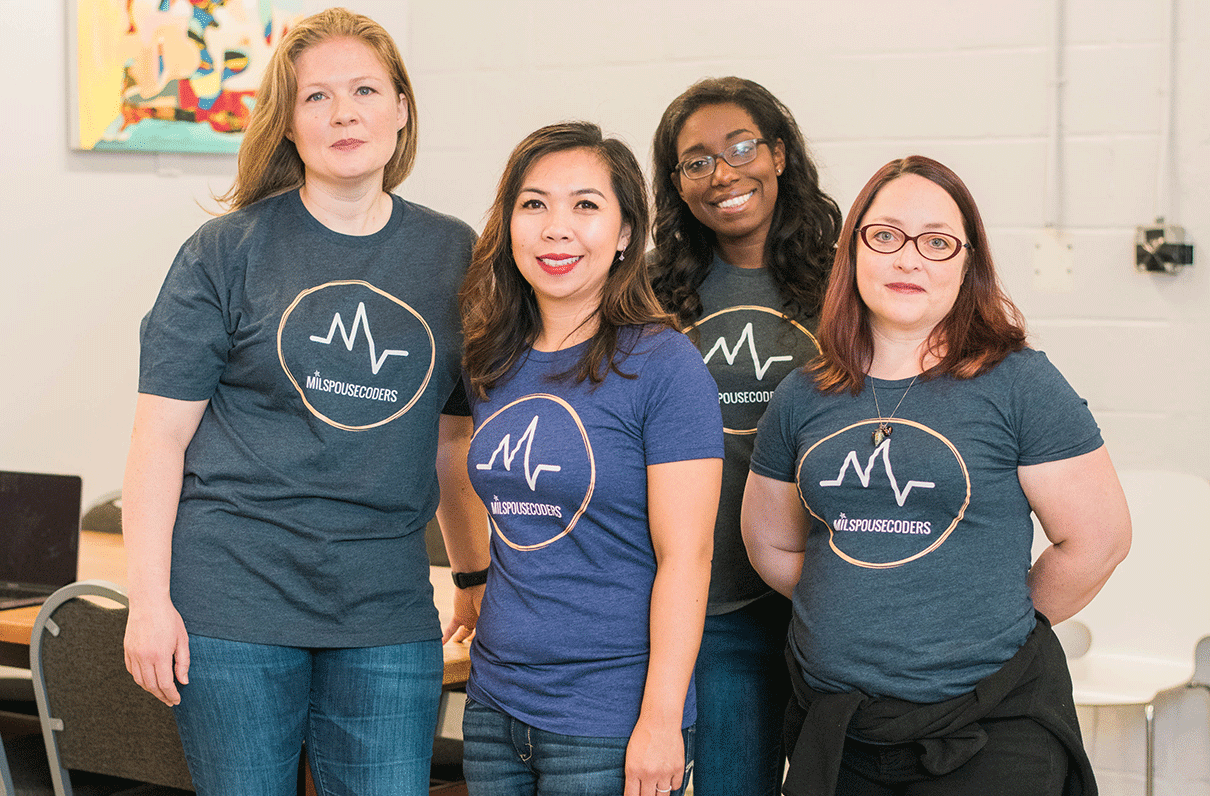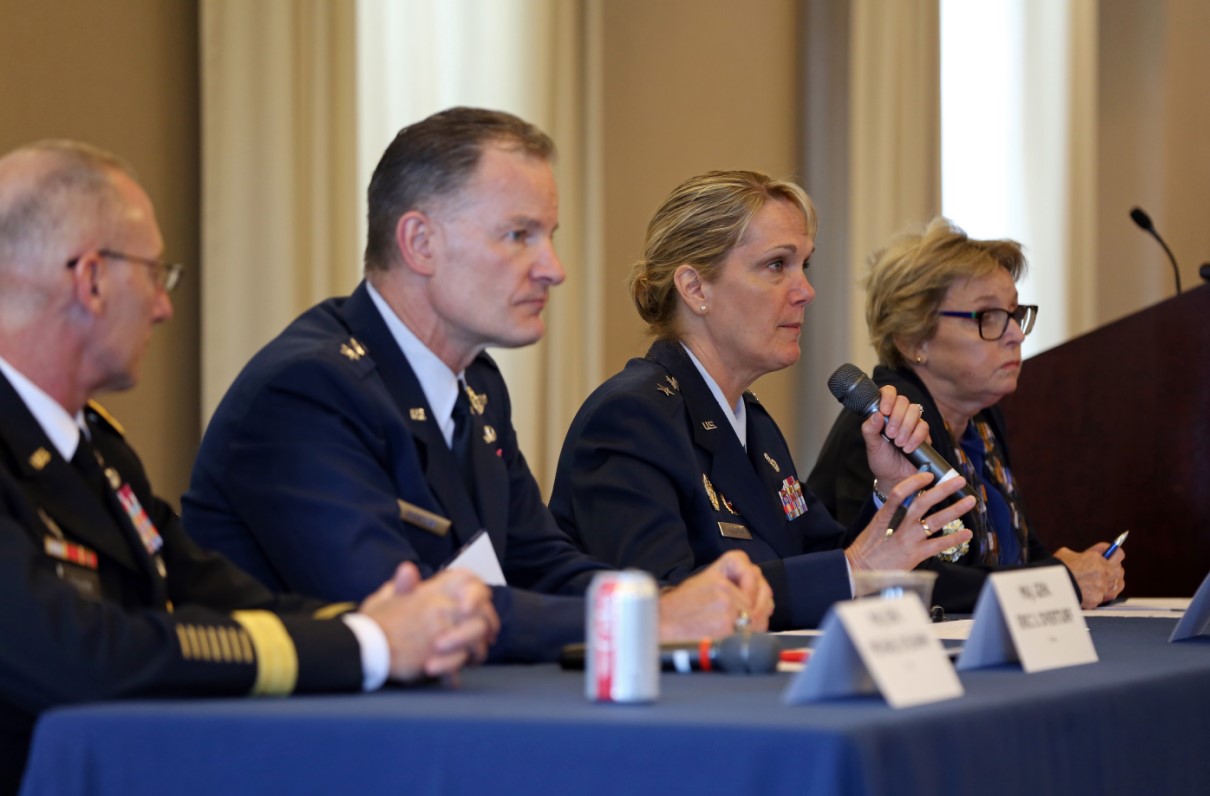By Alison Buckholtz
Kerry-Leigh Grady learned computer coding in fifth grade, typing out commands for BASIC on an Apple IIc. She liked it so much that she later majored in Computer Science, and after college she worked as a software developer. But after she married a Naval officer, “a tragically-timed PCS happened,” she recalls, “and my career went sideways.” As her family moved around the country, and her babies grew into young children, she looked for a job that was portable, flexible—and would allow her to continue the coding career she loved.
As Grady searched listings for remote jobs, something unexpected turned up: a Facebook group called MilSpouse Coders. “It sounded like my people — technically-included spouses dealing with the challenges of military life,” Grady remembers. “Next thing I knew, I was a chapter leader [in Norfolk, VA].”
As Board Chair, the volunteer position Grady now holds in addition to her full-time coding job, she works with other officers of MilSpouse Coders to introduce members and potential members into technical fields. MilSpouse Coders' next high-visibility event will take place next November, when its members will participate in a hackathon in Seattle--and for that, the group will be backed by Microsoft Military Affairs.
[LEARN MORE: Visit https://milspousecoders.org]
ToAnh Tran, founder of MilSpouse Coders, saw the potential marriage of military spouses and coding careers. “Tech is everywhere and having the skills to build or maintain a website, server, or app is in high demand. You can take your job anywhere because the tech industry is very remotely friendly,” she said.
The idea for MilSpouse Coders first came to her when her family was stationed in Sasebo, Japan. She launched the initiative “out of desperation to find anybody who liked to code,” she remembers. It took over two years for the group to attract members through Facebook and its website. Gradually, people started requesting to start their own chapter of MilSpouse Coders for other like-minded military spouses in their area.
Despite Tran’s initial inklings, she was taken aback by the strong, steady level of interest. “I was surprised to find we had a lot of military spouses that had computer sciences degrees and worked in the industry but had to give up their jobs to support their partners,” Tran said. “Some of our chapter leaders are returning to the industry after 15 or 20 years.” Tran, a flight attendant for Alaska Airways and the wife of a Command Senior chief, enjoys coding when she’s not flying, building robots with the family, and overseeing the 15 chapters of MilSpouse Coders.
Those chapters, including groups in Japan, Germany, Guam, California, Idaho, Virginia, and many more, operate autonomously, led by the needs of the individual participants. Some of these chapters may attract five or six regular members, while others bring in as many as 16. Most of them meet up to code together. Some gather to hear special speakers, others to compare notes on job searches.
In the San Diego chapter, Mercedes Welch, remembers how intimidating the idea of coding was to her before she started. It’s important to her the chapter she leads is “an acronym-free zone” where no prior experience with coding or technology is assumed.
“A lot of us have kids at home and a lot going on,” Welch said. “So we make it possible to teach yourself, with support, at your own pace.” “The local public library serves as their meeting space, but each group is encouraged to create the most conducive environment for its members. Before she moved to San Diego, for example, Welch founded and led the Northern Virginia chapter, which was hosted by the USO at Fort Belvoir. It was such a productive space to meet that Welch, a graduate of the Naval Academy, a Marine Veteran, and married to an active-duty Naval officer, learned HTML, CSS, and Java Script. With those skills she was able to land a part-time job as a coder—a position she kept after her cross-country move.
Although launching a technical career has been a welcome step forward for some military spouses, the community of MilSpouse Coders takes pains to meet its members at whatever style and level of learning is right for them. “This group, both online and in the local chapters, offers whatever our members bring,” Grady said. “Without fail, when someone comes with a need or a question, many members will step forward to offer advice, help, or commiseration. There’s no judgment, not for the spouse who’s brand new to HTML, and not for the spouse who’s spent the last five years at a Silicon Valley company. We are, all of us, here to be the tide that lifts all ships.”



